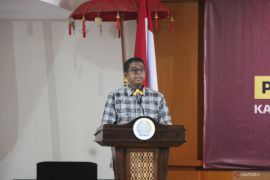"Corruption is still happening in Indonesia. It is a real threat to the development of this nation," Yudhoyono noted.
The President explained that awareness among people is the first positive step toward eradicating corruption. He also urged the law enforcement personnel to prevent and eliminate corruption in an aggressive manner.
Indonesias efforts to eradicate corruption from the country are progressing, according to the latest Corruption Perception Index released by Berlin-based NGO Transparency International.
The Corruption Perception Index 2013 was released on Tuesday, and it placed Indonesia in the 114th position among the 177 countries being examined by the NGO. The latest ranking is a positive development, considering that Indonesia was ranked 118th last year.
According to Transparency International Indonesia, the Corruption Eradication Commission has successfully uncovered several corruption cases involving high ranking officials and parliament members in the last one year.
However, more challenges are expected as Indonesia plans to hold general elections next year. Transparency International highlighted the need for transparency in the use of campaign funds and evaluations of the track record of parliament members or candidates ahead of the election.
The NGO also recommended that the Indonesian people be more active in ensuring a more transparent and accountable election in 2014.
The global Corruption Perceptions Index 2013 adjudged Denmark and New Zealand as the least corrupt, while Afghanistan, North Korea and Somalia were the worst performers this year.
The Corruption Perceptions Index is based on experts opinions about public sector corruption in each country.
Countries scores can be enhanced by allowing strong access to information systems and rules governing the behavior of those in public positions, while a lack of accountability across the public sector coupled with ineffective public institutions can hurt these perceptions. (*)
Editor: Heru Purwanto
Copyright © ANTARA 2013











